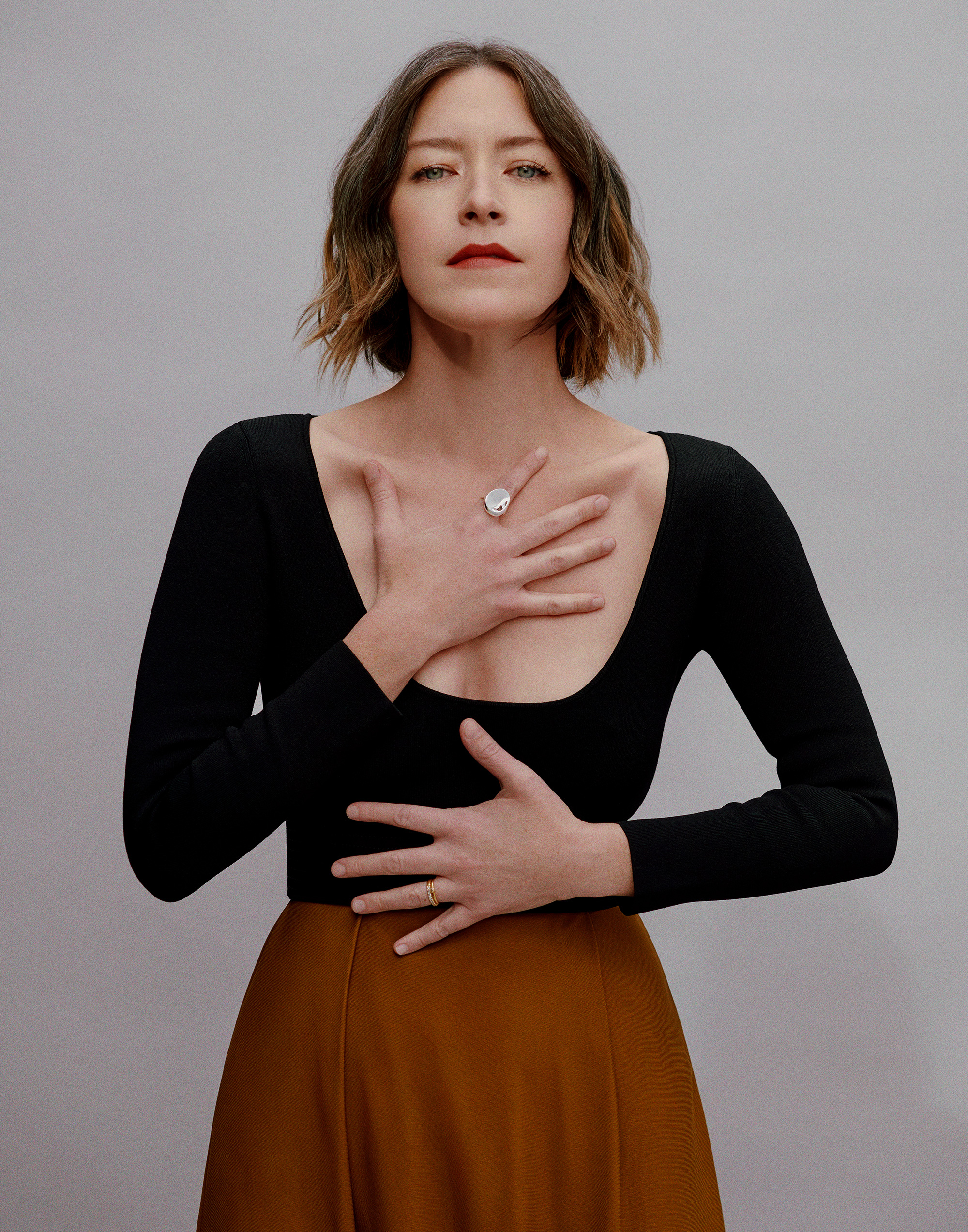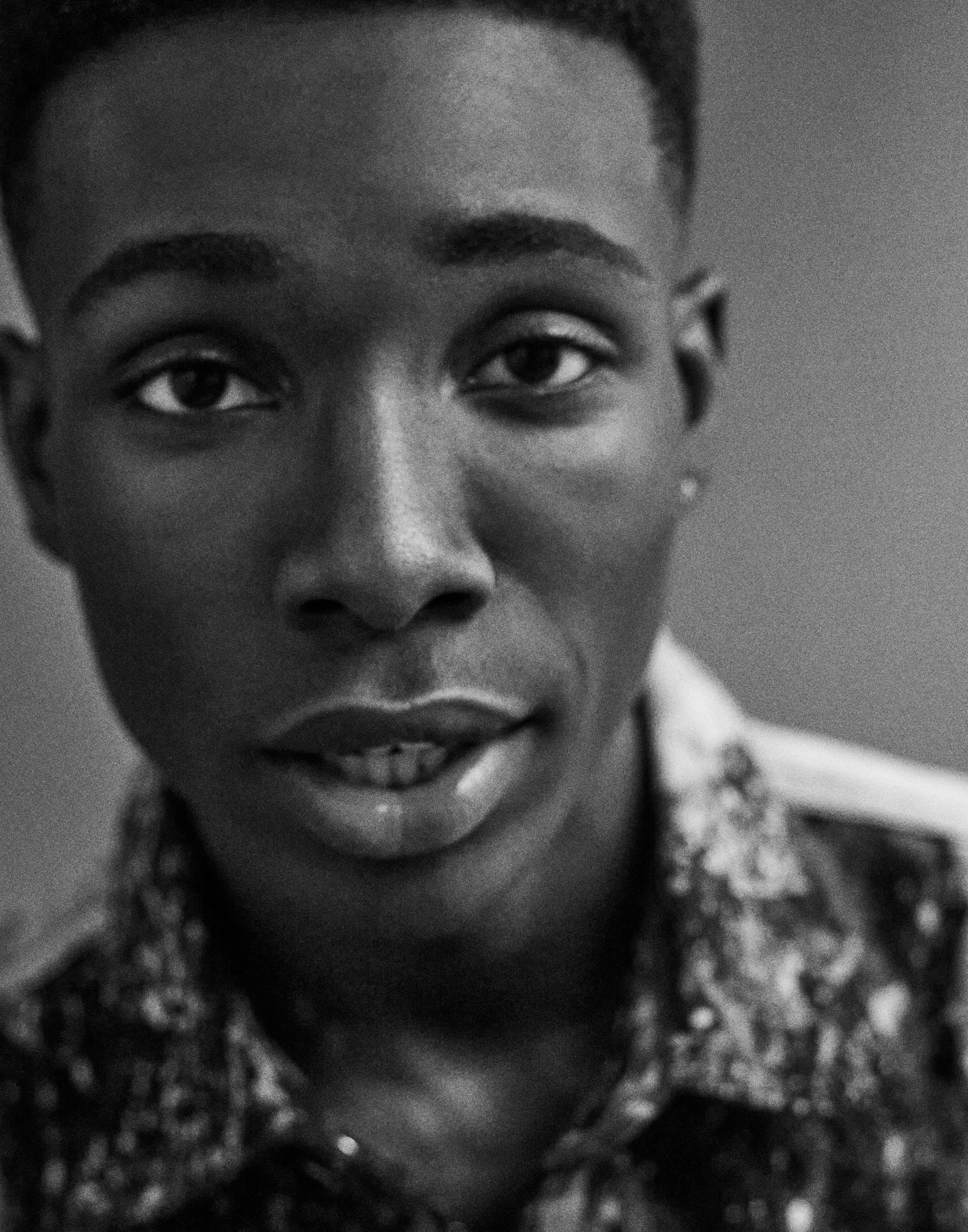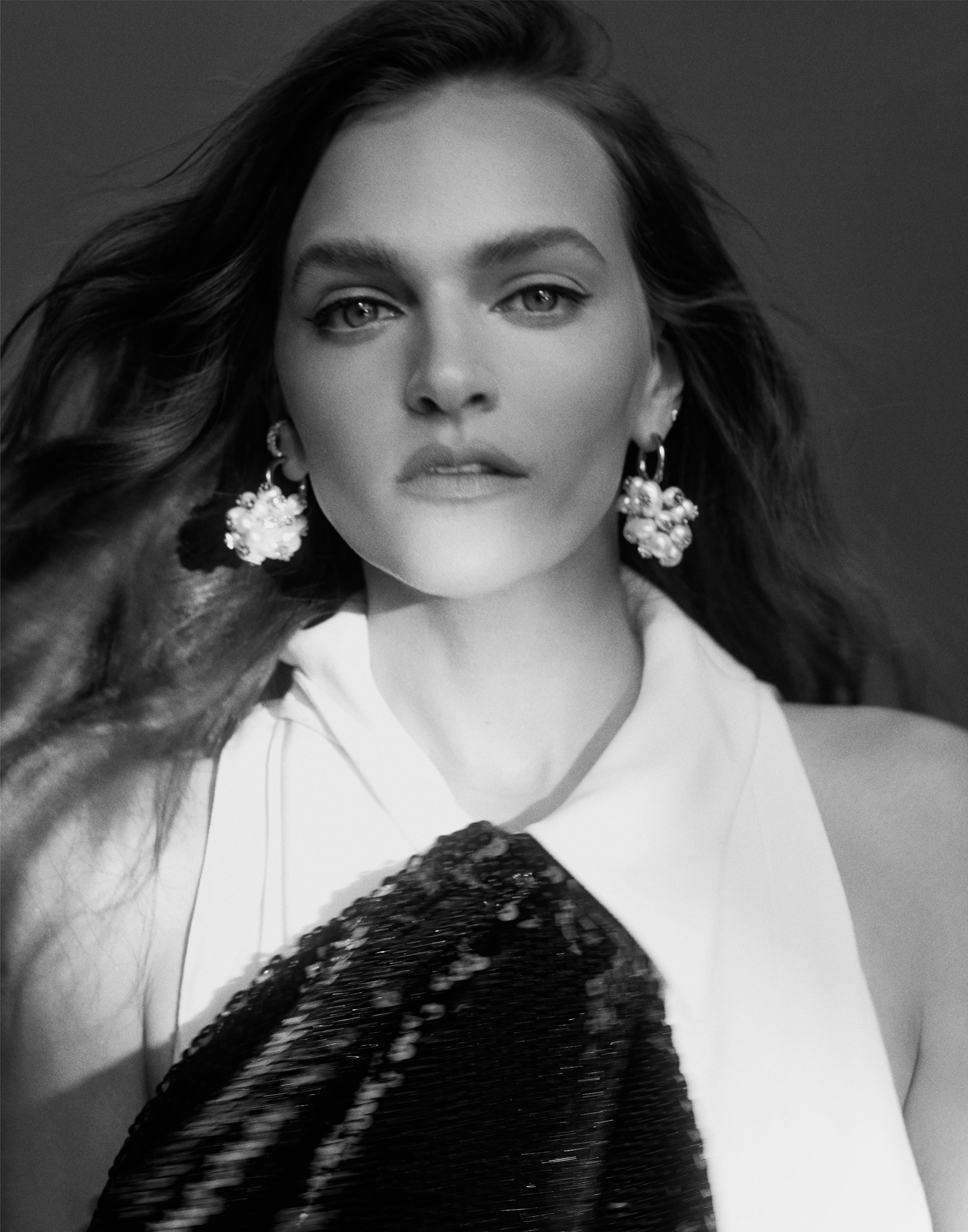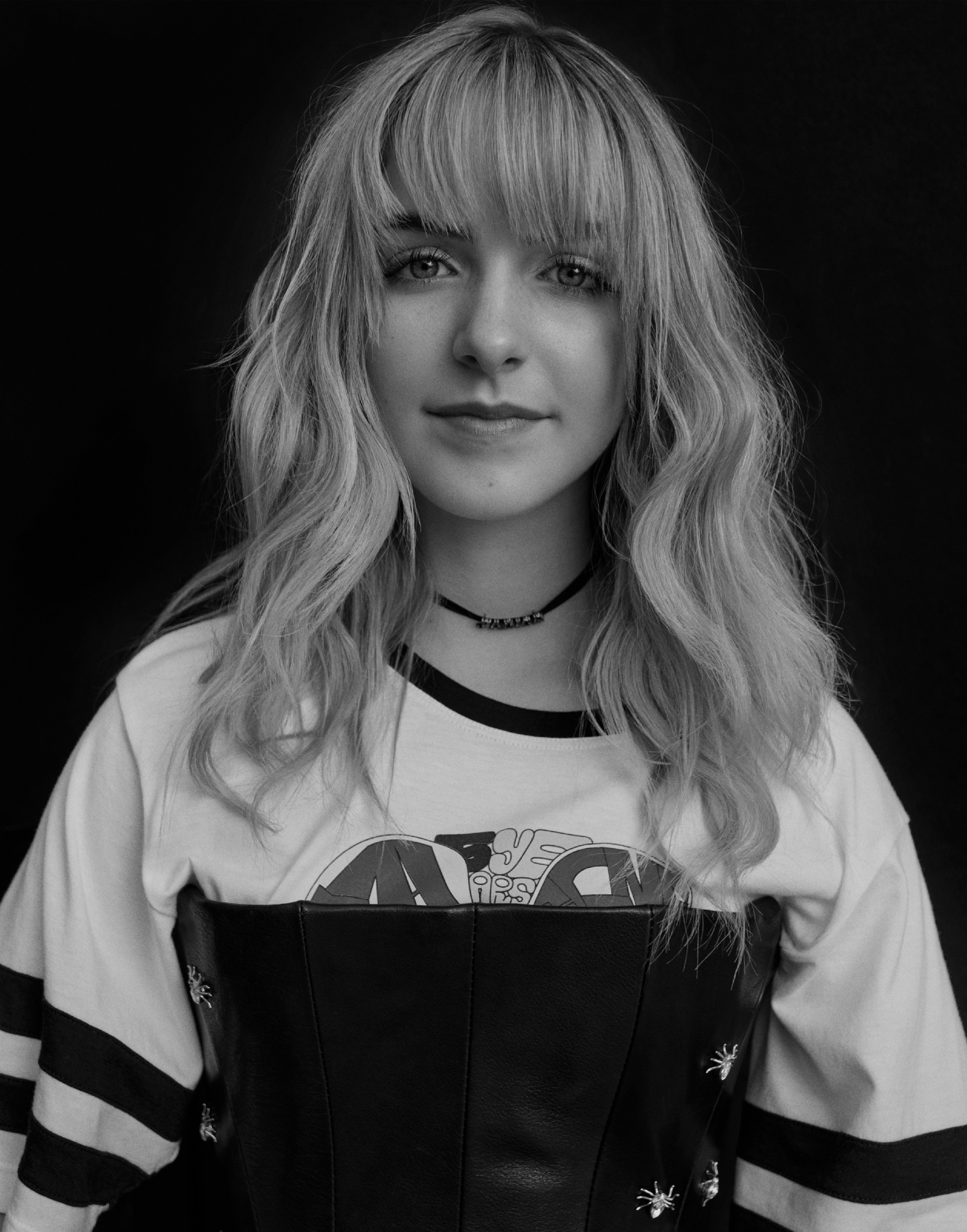INTERVIEW ERIN WALSH
PHOTO CHRISTIAN HOGSTEDT
MEET Julia Hart, director extraordinaire of I’m Your Woman, who fills us in on how going through the dark can lead us to the light. Julia spoke with SBJCT about her influences, her process, working with her partner, and navigating social responsibility amidst strange times. Read on below…
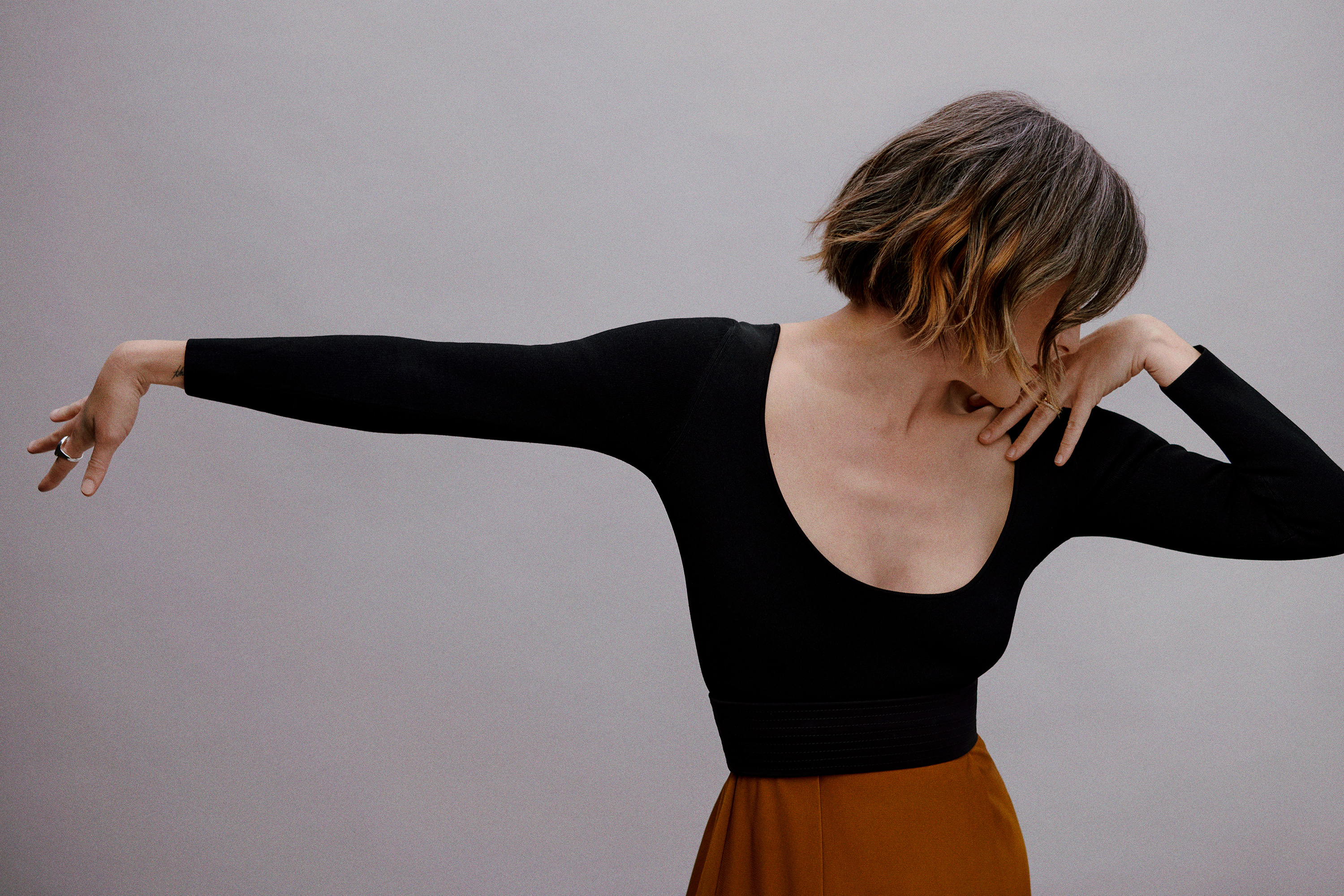
DRESS Proenza Schouler
Erin Walsh Tell us about I’m Your Woman. I am so excited about this film!!! Fill our readers in on what it is about and what you hope they take away from it…
Julia Hart I love 70’s crime dramas, but I always found myself wanting to know what happened to the female characters in them. What they were feeling, what they were thinking. Those movies always focused on the male characters and I wanted to dive into that same world, that same time period, but from the female perspective. And those movies are often very cynical and dark. And while our movie definitely goes to dark places, telling the story of the women and the children within that world ultimately leads to a hopeful place. I hope audiences leave feeling like they got to see the side of a story they’ve never seen before, delved into the minds of characters they haven’t gotten to before and that they leave with a feeling of hope and the importance of community.
EW Any particular inspirational pieces when you were putting together the LOOK of the film? Any films you thought necessary for Rachel to become aware of in her own research?
JH Michael Mann’s THIEF was the biggest inspiration for sure. Mostly in terms of story, but also influenced the look. Also ALICE DOESN’T LIVE HERE ANYMORE, THE GETAWAY, NORMA RAE, THE GODFATHER. In terms of the look, we studied a lot of American photography from the period and thereabouts. Domestic stuff. Highways. Diners. Women. William Eggelston, Stephen Shore, Gordon Parks.
EW Tell us about your usual process. Where do you start, both in the writing process and then in the directing process. What are the seeds and how do you begin to put the parts in motion? I know this is a wide question, but I am curious, because it is a wide process- how do you break it down? Where do you begin? How do you go about organizing and being brave enough to allocate various responsibilities?
JH We always begin with an idea. Then we have LOTS of conversations about it and eventually, when we feel ready, we move to an outline. And we write a long, detailed outline. And we never get this far in the process unless we know it’s a movie we want to make together. Since I direct and Jordan produces, we don’t even bother writing something unless we’re really passionate about making it. And we have to be passionate about something we’re making because of the investment that goes into making a film. So much time. So much work. So much time away from our kids. It really has to matter to us. And that all starts with an idea.
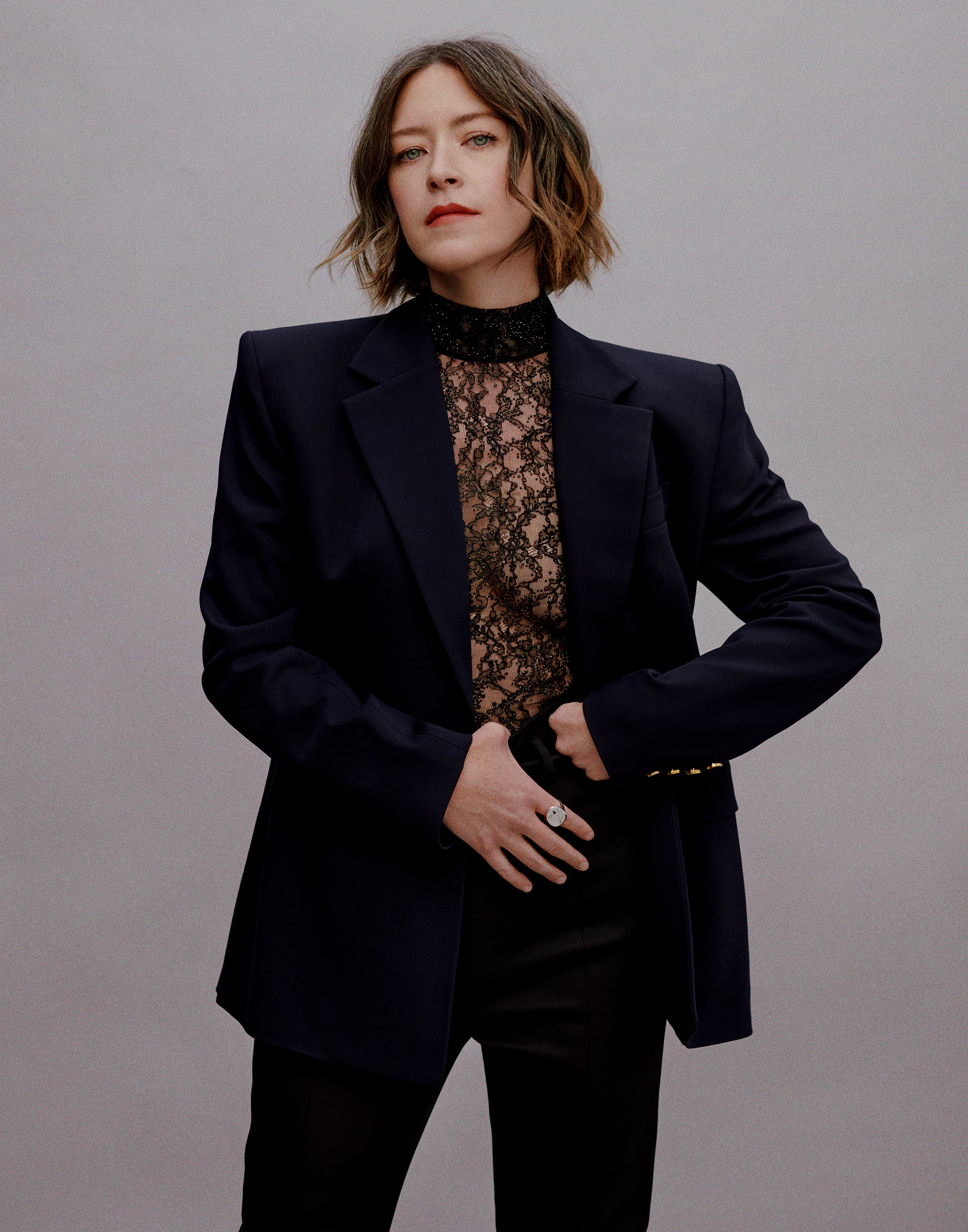
LACE TOP Ralph and Russo
EW Were there any notes of profound weight that you felt hesitation about hitting in the right way? Whether that is politics, race, or…
JH I never feel hesitation about the important stuff cause I feel a profound sense of responsibility to it, especially as a white person. I honestly feel like getting race and gender right in a film is the least I can do as a woman and a white person. So I dive fully into all that stuff. It’s dipping your toes into “sensitive” topics that is problematic. The best thing we can do as white people is dive in fully, get uncomfortable and learn as much as we can in the process. I wish more white creators would force themselves to get uncomfortable. On the other side of that discomfort is knowledge, and knowledge is always better than ignorance.
EW What do you think the social responsibility of being an artist is?
JH I think as artists we have the ability to change and shape culture and that is a HUGE responsibility. Even when our work isn’t explicitly political, the way we portray women matters. The way we portray people of color matters. The way we portray the LGBTQ community matters. It all gets observed and absorbed. Young people are watching and making decisions about themselves and their value based on how they see themselves represented in film, television and music. Or worse, not represented at all. It is important to feel free as artists, but it is also important to be aware of our impact.
EW We spoke a bit about your transformation from being a New Yorker to a Californian- you mentioned that feeling familiar to me of being “unable to release your shoulders from your ears” with all the energy and anxiety of city life. What changed when you moved West for you? Do you miss anything about NYC?
JH I’ve lived in California for 13 years now and it really is home. It’s where I became a writer and a director. It’s where I became a wife. Most importantly, it’s where I became a mother. It’s where I found myself. In California you have to work harder to find that, it’s vast and spread out. I loved that challenge. Of finding myself, my people and my home. I love that I can be outside, that my kids can be outside almost every day of the year. I love that we can go to the beach or the mountains or the desert in the blink of an eye. I have always loved nature and I love how it can be a part of daily life here. It makes me feel relaxed and it makes me feel whole.
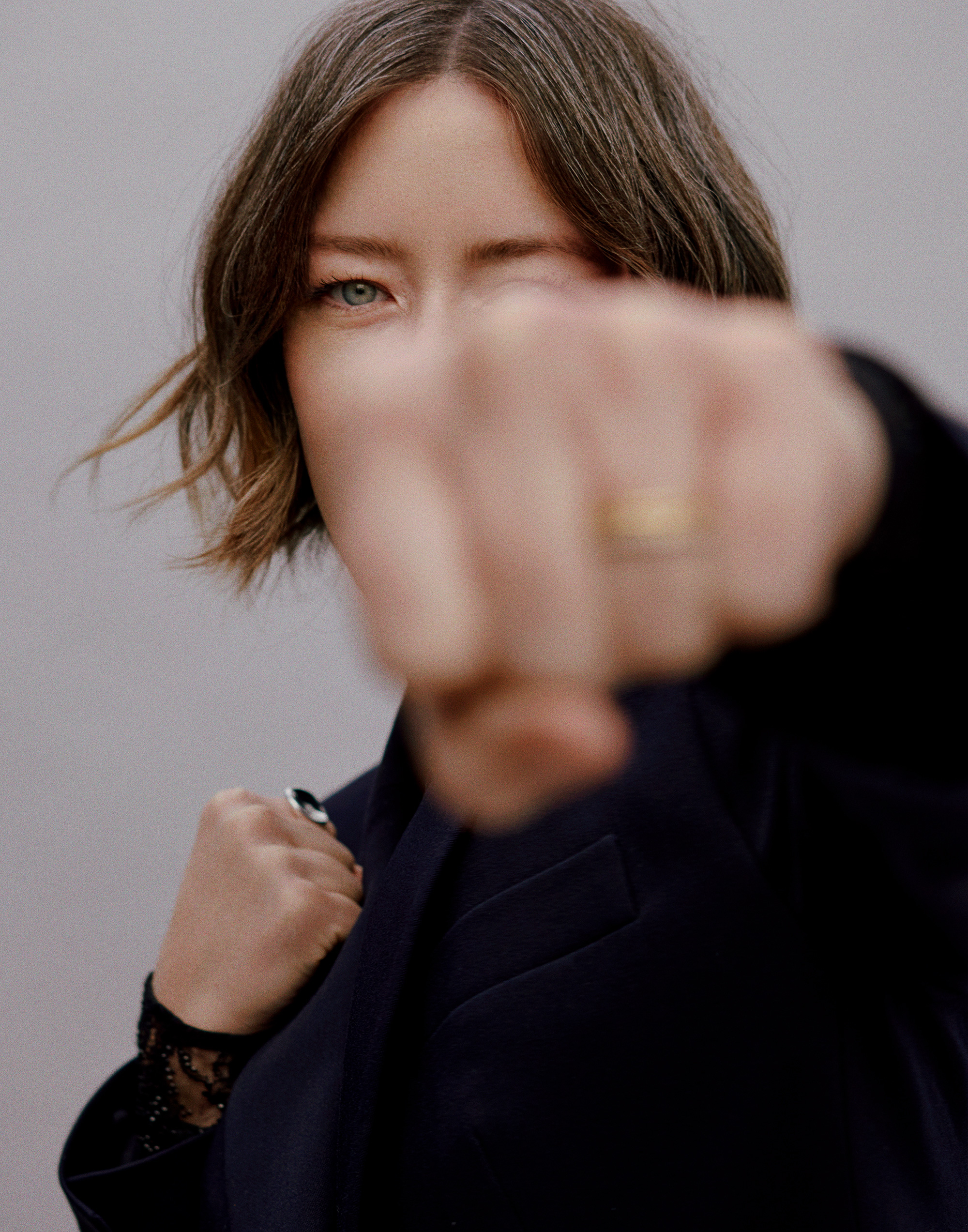
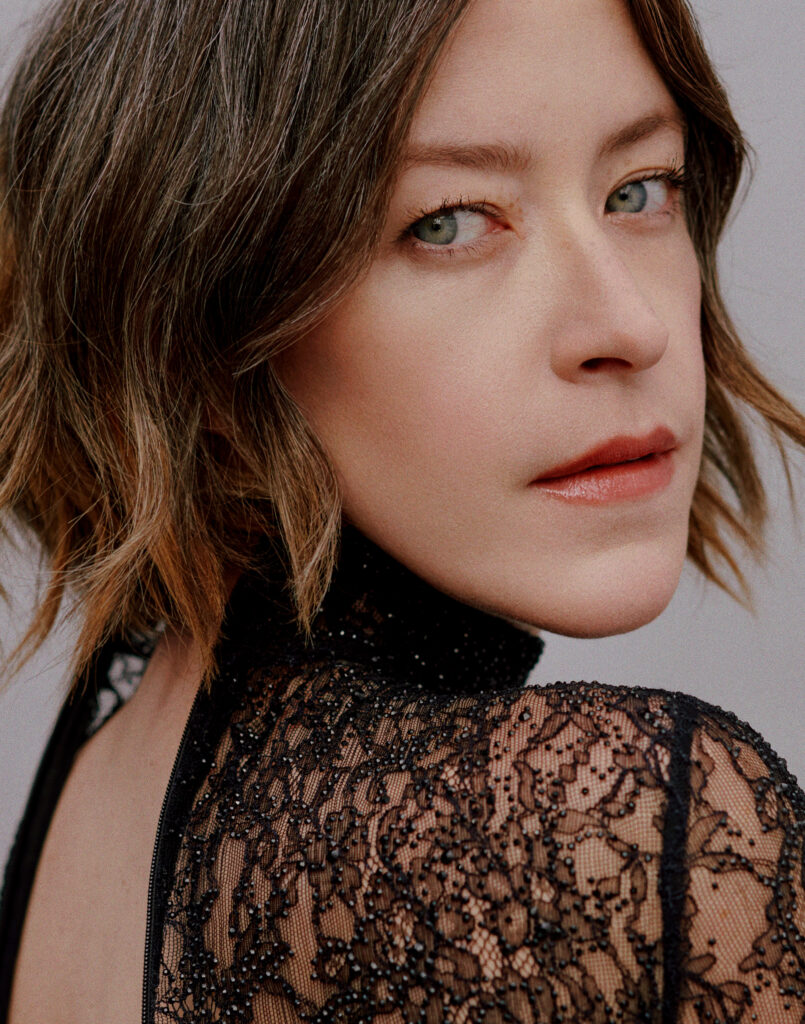
as artists we have the ability to change and shape culture and that is a HUGE responsibility
EW What about creatively? Is it as inspiring from a creative perspective living out here? How do you break it down?
JH I find California SO inspiring. I feel like there are so many stories hiding here waiting to be told. It’s so big and so diverse. It’s almost infinite. I’m actually going to be making my first movie about Los Angeles soon and I’m so excited. MISS STEVENS took place in and around Los Angeles, but wasn’t explicitly about this city in any way. This next film is and I cannot wait. I’m so excited to commit a love letter about this place to film.
EW Tell me about working with your life partner. How do you find the process or working with the person that you love to be? Enlighten us…
JH I feel like the luckiest person in the world, to be honest. Everything just matters more when you do it with someone you love. We get to take everything home. The good and the bad, and there’s a lot of meaning in that. There’s a lot of unspoken understanding. No explanations necessary, which at the end of a long day is such a gift. It’s all lived in together. Some people we’ve worked with are like “I couldn’t do that.” And I get it. And listen we’ve had our ups and downs, lord knows we’ve had hard times of hurt and pain, but out of that always comes growth and good times. We’ve been together 15 years and we get to put all that experience and life and pain and growth and love on the page and then on the screen.
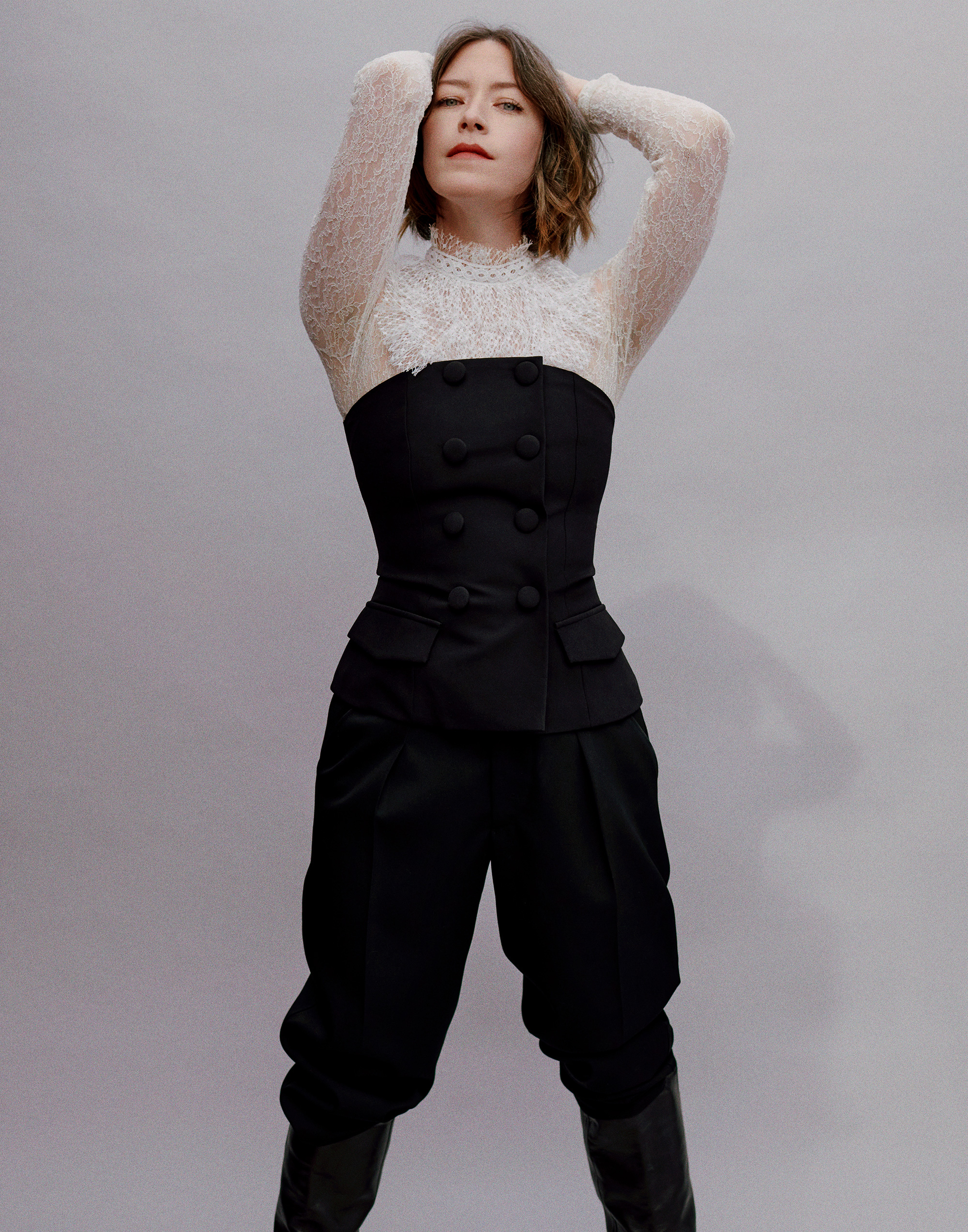
LACE TOP Ralph and Russo BUSTIER Bec and Bridge PANT Isabel Marant
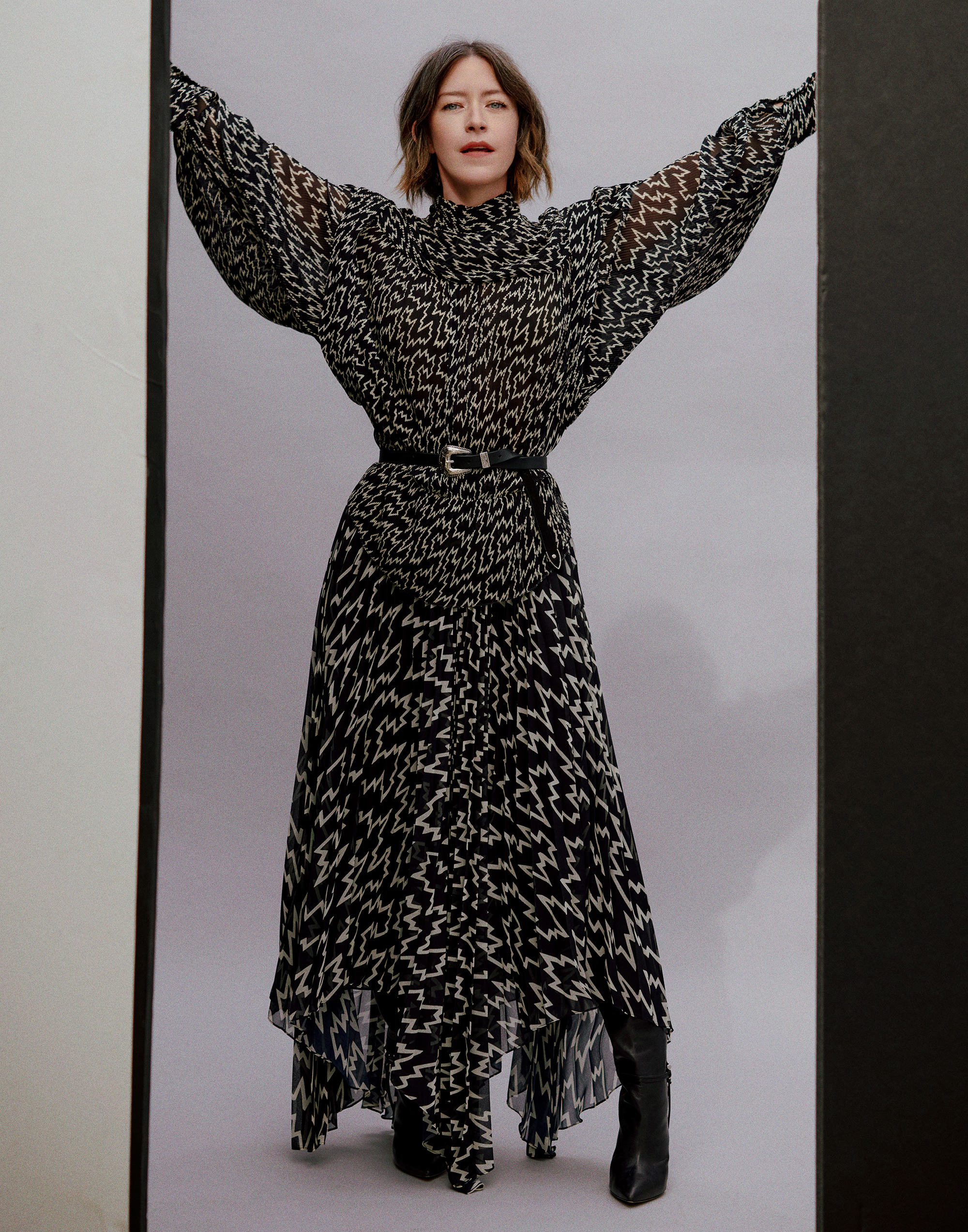
TOP AND SKIRT Isabel Marant BELT B-low the Belt
EW What are some of your favorite ways to contribute, some of your favorite causes? We would love to direct our readers as to how they can be a part of the change YOU would like to see in the world…
JH Something that is deeply important to me is inclusion and representation in film. It’s important to my own work both in front of and behind the camera, but also Jordan and I spend a good amount of time mentoring and reaching out to people in the business who for reasons of race, gender or sexual orientation have not had certain opportunities. The system is broken and I feel as someone who has benefited from it, and had the privilege of my whiteness to succeed within it, that it’s my job to pay it forward. There are so many talented artists who just haven’t gotten the chance to be heard and if I can help them in that I will.
EW What really inspires you when you are trying to dream up a next project , and how do you find the time for inspiration in our current quarantine life?
JH Jordan and I always say that daytime is for current projects, and nighttime, after we put the kids to bed and we finally get to exhale and sit down, that’s when we dream about what’s next.
EW Any mentors who you have found to be instrumental?
JH My teachers. Always my teachers. I was incredibly lucky from a young age to have incredible women in all subjects at school. I still think about them all the time and feel grateful for the ways in which they taught and inspired me. They showed me what it meant to be a good, passionate adult and a hard-working and conscientious citizen. Teachers are the best. It’s one of the hardest jobs in the world.
EW What is keeping you sane these days? Both physically and emotionally?
JH Space. And being outside. I love taking long walks. Or just sitting outside. So many days can go by where work keeps us at a desk or in front of a screen and it’s so important to remember to get up and go outside. Even opening a window! Fresh air is everything. And deep breaths.
Teachers are the best. It’s one of the hardest jobs in the world.
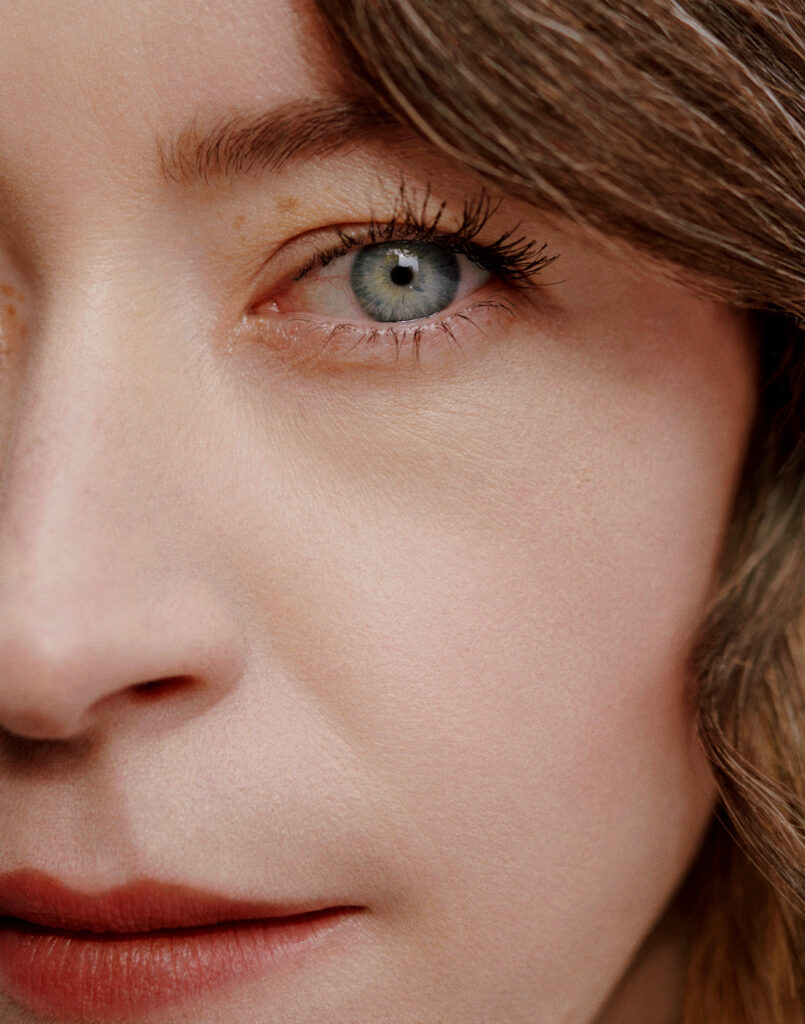
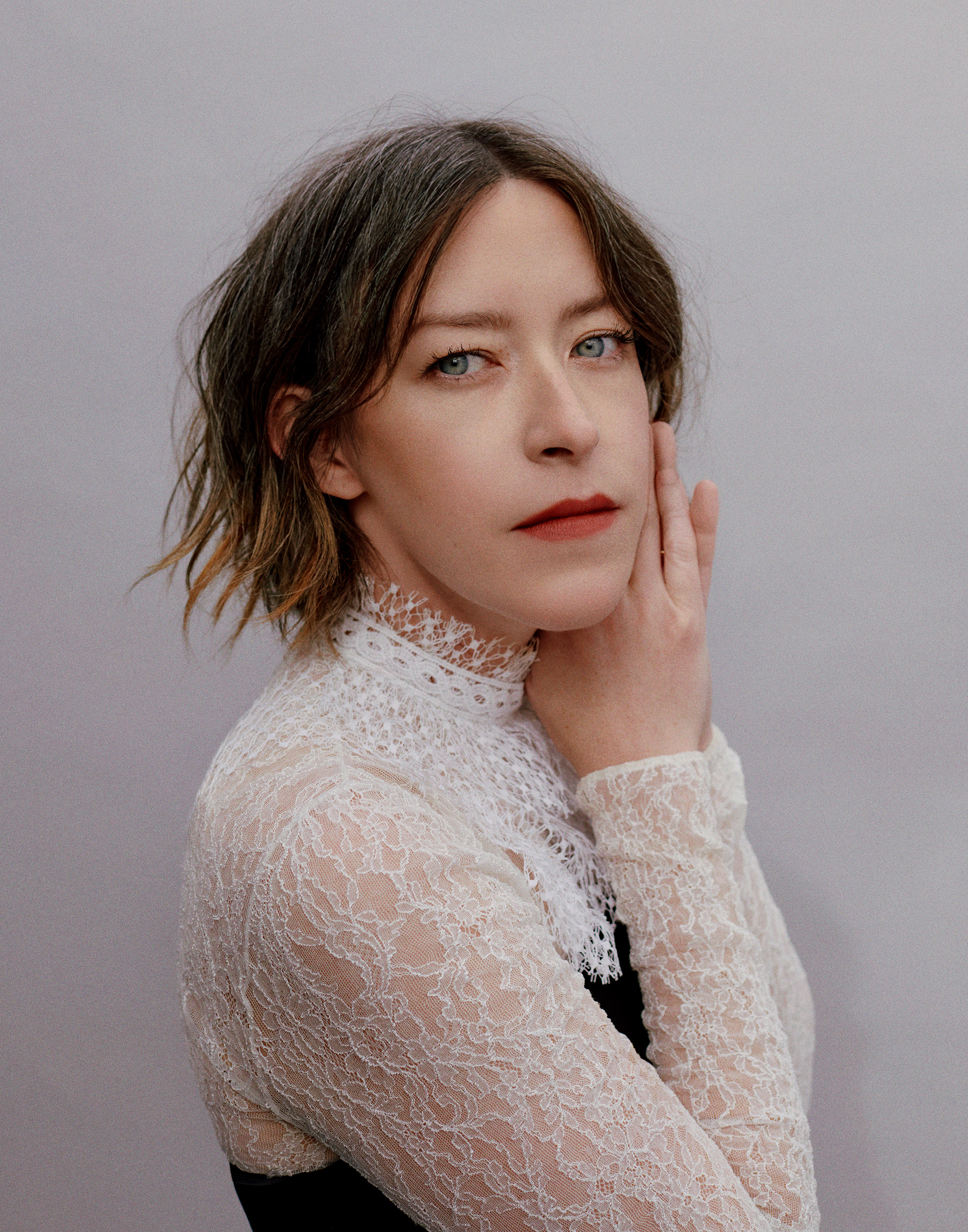
EW How would you describe being a mother?
JH Lucky. I just feel very very lucky. I have two healthy, happy babies who are the best part of every day. Becoming a mother was the best thing that ever happened to me and that’s just luck. My body just did that. I know what a privilege that is.
EW Favorite place in the world?
JH California and Japan.
EW Current obsession in terms of film, TV, reading?
JH I’ve just finished my friend, Frederick Joseph’s book THE BLACK FRIEND — it’s remarkable and a very important read for every white person. And if you don’t follow him on social media, you should. He’s the most generous, brilliant activist and writer. I feel lucky to know him and learn from him.
I also loved Clea Duvall’s HAPPIEST SEASON and want more movies like it immediately!
EW What makes you very proud?
JH My kids. Doing literally anything. Like the first time your kid pees in the potty you jump and down and celebrate. The littlest random things become the most glorious miracles.
EW Julia, What’s Your SBJCT? What really drives and moves and motivates you?
JH Telling stories about people that haven’t been told before. There are so many underrepresented groups in film and it’s an honor to get to tell their/my/our stories.
